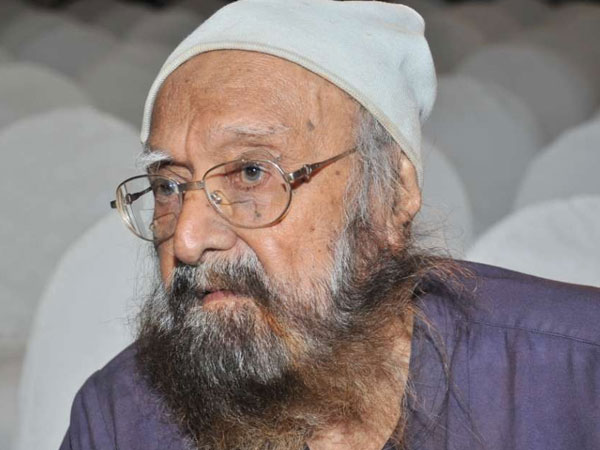News Anchor
Khushwant Singh Wiki,Early life, Awards,Net Worth,Lifestyle,Relationship and more

Early Life:
The Roots of a Literary Legend
In the quaint town of Hadali, nestled amidst the verdant fields of Punjab, Khushwant Singh, the future literary luminary, came into the world on February 2, 1915. Born into a family of affluence and prestige, young Khushwant was the son of Sir Sobha Singh, a renowned builder and civil contractor, and Lady Veeran Bai.
Childhood and Education:
Nurturing the Flame of Curiosity
Khushwant’s early years were marked by a voracious appetite for knowledge and a keen intellect that set him apart from his peers. His educational journey began at Modern School in New Delhi, where he first discovered his love for literature. Later, he pursued higher studies at Government College in Lahore, where his literary talents flourished under the tutelage of esteemed mentors.
Pursuit of Legal Studies:
From the Halls of Justice to the World Stage
Following in his father’s footsteps, Khushwant ventured to London to pursue a degree in law at King’s College. It was here that he honed his skills as a legal scholar and emerged as a formidable force in the courtroom. After completing his studies, Khushwant qualified as a barrister at the prestigious Inner Temple, laying the groundwork for a promising legal career.
Career in Law and Diplomacy:
A Man of Many Hats
Armed with his legal acumen and a thirst for adventure, Khushwant embarked on a multifaceted career that would take him across continents and into the corridors of power. He began his professional journey practicing law at the Lahore High Court, where he distinguished himself as a skilled advocate.
However, Khushwant’s ambitions extended beyond the confines of the courtroom. Drawn to the world of diplomacy, he soon found himself representing India on the global stage, serving as a diplomat in countries such as the United Kingdom and Canada. His diplomatic tenure provided him with invaluable insights into international affairs and cemented his reputation as a statesman of great caliber.
Literary Aspirations:
The Birth of a Wordsmith
Despite his success in the realms of law and diplomacy, Khushwant’s true passion lay elsewhere: in the realm of literature. From a young age, he had harbored dreams of becoming a writer, inspired by the works of literary giants such as Leo Tolstoy, Mark Twain, and Rabindranath Tagore.
In 1956, Khushwant’s literary ambitions came to fruition with the publication of his debut novel, “Train to Pakistan.” Set against the backdrop of India’s partition, the novel struck a chord with readers worldwide, earning him widespread acclaim and establishing him as a formidable voice in Indian literature.
Rise to Prominence:
A Beacon of Literary Excellence
With the success of “Train to Pakistan,” Khushwant’s literary career soared to new heights. He went on to pen a myriad of novels, short stories, and essays, each imbued with his trademark wit, wisdom, and razor-sharp insight into the human condition.
From the poignant pages of “The Company of Women” to the sweeping saga of “Delhi: A Novel,” Khushwant captivated readers with his masterful storytelling and unparalleled ability to capture the essence of India’s rich cultural tapestry. His works transcended borders, resonating with audiences of all backgrounds and cementing his status as a literary icon.
Journalism and Editorial Prowess:
A Voice of Truth in a Sea of Noise
In addition to his literary pursuits, Khushwant made significant contributions to the field of journalism, serving as the editor of several esteemed publications, including “The Illustrated Weekly of India” and “The Hindustan Times.” Through his columns and editorials, he fearlessly tackled pressing social and political issues, challenging the status quo and sparking meaningful dialogue among readers.
Khushwant’s journalism was characterized by its candor, humor, and unwavering commitment to truth. Whether dissecting the intricacies of Indian politics or shedding light on the plight of the marginalized, he remained steadfast in his pursuit of justice and integrity.
Awards and Accolades:
Honoring a Literary Luminary
Khushwant’s contributions to literature and journalism did not go unnoticed. Throughout his illustrious career, he was the recipient of numerous awards and accolades, including the Padma Bhushan, one of India’s highest civilian honors, which he received in 1974 in recognition of his exceptional service to the nation.
In 2007, Khushwant was bestowed with the Padma Vibhushan, India’s second-highest civilian award, further solidifying his place among the pantheon of literary greats. His legacy continues to inspire writers and journalists alike, serving as a testament to the enduring power of words.
Personal Life:
A Man of Contradictions
Despite his public persona as a literary giant and social commentator, Khushwant remained a private individual at heart. He was married to Kawal Malik, with whom he shared a deep and enduring bond. Together, they raised two children, Rahul Singh and Mala, and created a life filled with love, laughter, and cherished memories.
Yet, behind the facade of success and accolades, Khushwant grappled with his own demons. He was known for his indulgent lifestyle, marked by his love of whiskey, cigars, and fine cuisine. Despite his outward confidence and bravado, he struggled with bouts of self-doubt and existential angst, grappling with the complexities of life and mortality.
Less Known Facts:
- A Polyglot Extraordinaire: Khushwant was fluent in several languages, including Punjabi, Hindi, Urdu, English, and French, a testament to his linguistic prowess and cultural fluency.
- A Voice of Dissent: Despite his Sikh upbringing, Khushwant identified as an agnostic and often criticized organized religion in his writings, advocating for a more secular and inclusive society.
- A Green Thumb: In addition to his literary pursuits, Khushwant had a passion for gardening and spent countless hours tending to his lush green oasis, finding solace and serenity amidst the chaos of the world.
- Through the Lens: Khushwant was an avid photographer, capturing snapshots of life’s fleeting moments with his trusty camera and immortalizing them for posterity.
- Whiskey Connoisseur: Khushwant was known for his love of whiskey, often indulging in a glass or two to unwind after a long day of writing and editing. He even joked that whiskey was his “liquid courage,” fueling his creative endeavors and igniting his imagination.
FAQs:
1. What inspired Khushwant Singh to become a writer?
Khushwant’s love for literature was cultivated from a young age, inspired by the works of literary giants such as Leo Tolstoy and Mark Twain. He was driven by a desire to explore the human condition and shed light on the complexities of life through the written word.
2. How did Khushwant balance his legal career with his literary pursuits?
Khushwant’s legal background provided him with a unique perspective that informed his writing and journalism. He viewed the law as a tool
for social change and used his platform to advocate for justice and equality.
3. What was Khushwant Singh’s writing process like?
Khushwant was known for his disciplined approach to writing, often waking up early in the morning to pen his thoughts before the distractions of the day set in. He believed in the power of routine and dedication, striving to capture the essence of his experiences through his writing.
4. What legacy did Khushwant Singh leave behind?
Khushwant’s legacy is multifaceted, encompassing his contributions to literature, journalism, and social commentary. He is remembered as a fearless voice of dissent, unafraid to challenge societal norms and speak truth to power.
5. How did Khushwant’s personal struggles influence his writing?
Khushwant’s own experiences with doubt, insecurity, and mortality imbued his writing with a sense of vulnerability and authenticity. He used his art as a form of catharsis, grappling with existential questions and seeking solace in the written word.
Controversies:
1. Blasphemy Allegations: Khushwant faced accusations of blasphemy for his irreverent commentary on religion in some of his writings, particularly his criticism of Sikhism and Hinduism. However, he remained steadfast in his beliefs and defended his right to free expression.
2. Political Criticism: He was often criticized for his outspoken views on politics and politicians, which sometimes led to backlash from those in power. Despite facing criticism, Khushwant remained committed to speaking truth to power and advocating for social justice.
3. Sexual Content: Some of Khushwant’s works contained explicit sexual content, which drew ire from conservative quarters of society. However, he defended his right to artistic freedom and argued that literature should reflect the complexities of human experience, including sexuality.
4. Plagiarism Accusations: There were allegations of plagiarism against Khushwant regarding certain passages in his writings, although these claims were never substantiated. Khushwant vehemently denied the allegations and maintained that his work was original and authentic.
5. Controversial Statements: He was known for making controversial statements in interviews and public appearances, which sometimes landed him in hot water with both critics and admirers. Despite the controversy, Khushwant remained unapologetic in his beliefs and continued to speak his truth without reservation.
Khushwant Singh’s life was a testament to the power of literature, journalism, and social activism. Through his writings, he challenged societal norms, provoked thought, and inspired generations of readers to question the world around them. Though he may have left this world, his words live on, a timeless reminder of the enduring legacy of one of India’s greatest literary icons.
